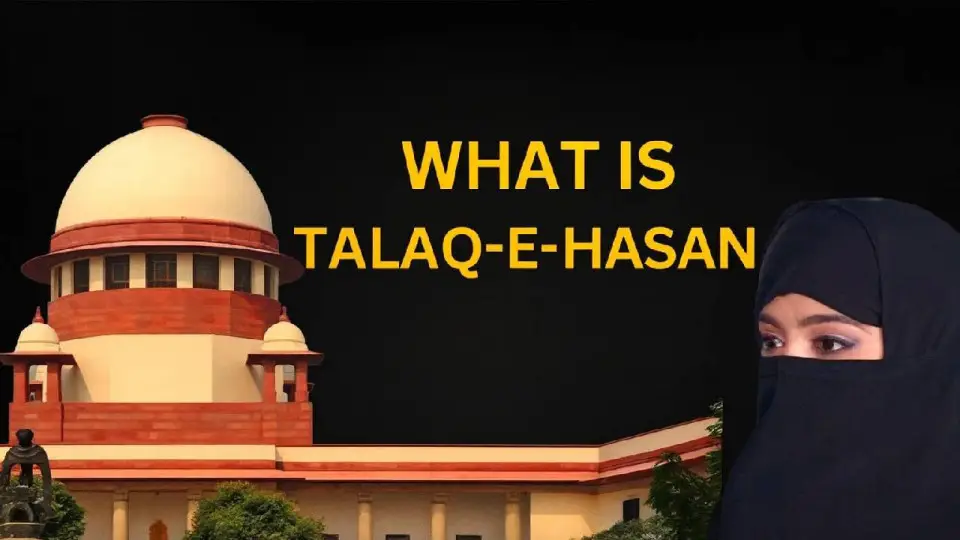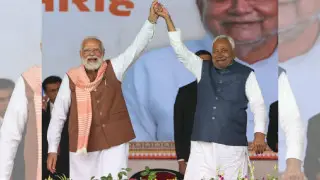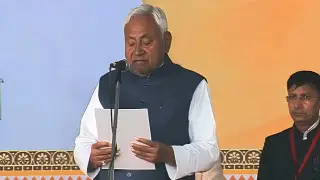
Talaq E Hasan (Credit: OpenAI )
New Delhi: In Talaq e Hasan, the husband gives divorce during three separate purity periods instead of saying all divorces at once. The Supreme Court expressed concern after a woman named Benazir Heena received divorce through a lawyer without her husband's presence. Judges asked whether such a process is acceptable in a modern society that believes in equal rights. The court said that one sided decisions affecting a marriage cannot be taken so casually.
The bench observed that basic dignity and communication must be maintained between husband and wife. The court stressed that divorce should not be used as a tool to abandon responsibility. This has created serious legal debate across the country.
The court noted that the husband sent the divorce notice through his lawyer without attending the proceedings. This raised questions about accountability and fairness in the marriage dissolution process. Judges said such behaviour does not reflect mutual respect or dialogue. In a court of justice, presence of the person taking a drastic step like divorce is essential for clear understanding. The bench criticised the idea of sending papers instead of facing the situation directly. It indicated that personal appearance is compulsory in such sensitive issues. The court signalled that evasion weakens the trust in law.
The petitioner argued that Talaq e Hasan violates Articles 14, 15, 21 and 25 of the Constitution. These articles guarantee equality, prevent discrimination and protect personal liberty. The allegation is that this practice gives excessive power to the husband and leaves the wife defenseless. The court may send the case to a larger constitutional bench for deeper examination. The aim is to check whether religious customs can override fundamental rights. The bench reminded that every practice must align with constitutional ethics. If found conflicting, it may face legal restriction.
According to Islamic procedure, divorce is given in three stages, each during a purity period after the woman completes menstrual cycle. The husband must not have physical relations during these periods. First divorce is declared during initial phase, second after next cycle and third after the following. The method is considered part of traditional practice that allows time for reconciliation. If husband and wife decide to resolve issues, the process can be stopped before final declaration. However critics say it is still one sided and lacks proper counselling.
In Triple Talaq, known as Talaq e Biddat, three divorces are spoken in one instance, ending the marriage immediately. There is no chance for reconciliation or reflection. Many Muslim countries including Egypt, Syria, Jordan and Kuwait have banned instant triple talaq. India declared it illegal in 2017, calling it arbitrary. It was replaced by law to protect women's marital rights. The court now questions whether Talaq e Hasan should also be reviewed under the same principle. The core concern is dignity and fairness.
The Supreme Court hinted that even Talaq e Hasan may be struck down if it fails constitutional scrutiny. The bench stated that modern legal system cannot support decisions taken without mutual discussion. Marriage is a civil contract and needs proper closure through lawful means. Judges emphasised that both parties must be heard before final dissolution. The issue has generated national debate among legal and religious experts. The court will examine all aspects before judgement.
The bench may transfer the matter to a five judge panel for final decision. It has ordered the husband to appear personally in the next hearing. If Talaq e Hasan is declared invalid, all future divorces under this method will require legal supervision. The judgement may shape future standards of divorce procedure in India. Many await clarity on whether religious customs can override modern justice. Until ruling arrives, the case remains under strong observation.













Copyright © 2025 Top Indian News
